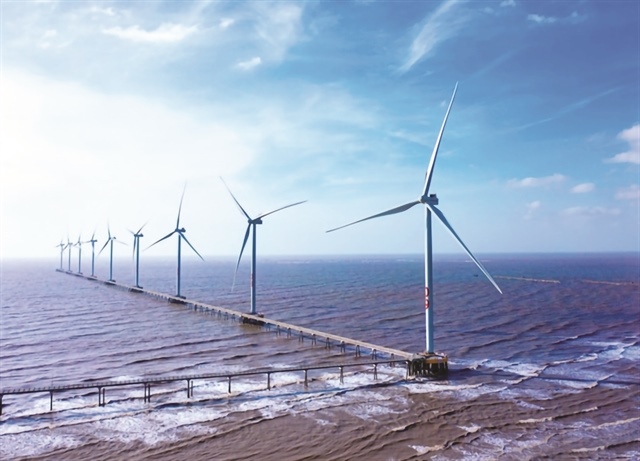Vietnam takes actions to rescue the slowly sinking fleet
Vietnam takes actions to rescue the slowly sinking fleet
It’s not the right time to find out who has to take responsibility for the unreasonable investment in the Vietnamese fleet, which has led to the disastrous consequences. It’s now the right time to find the way to rescue the huge assets which have been lost day by day, and save the crew members who have been trapped in both Vietnam and foreign countries.
Experts say like any other industries, shipping business would see ups and downs. In 2006-2007, when the transportation demand increased sharply, ship owners and crew members lived well thanks to the sky high freights.
The high demand then prompted investors to pour their money into the maritime transport. Ship builders continuously received orders and they had to work day and night to fulfill the contracts. Meanwhile, investors dreamed of earning big money from the then boisterous shipping market.
However, the market has always been as changeable as the weather. When investors received ships from ship builders,, the market became oversupplied, while the demand began decreasing dramatically due to the global economic crisis.
Since then, the shipping industry has fallen into decay. The newly built ships have been left idle because of no shipping orders. In the world, big ship owners had to sell ships as iron scrap, while living on the saving money.
The situation the Vietnamese fleet is facing seems to be even more serious because of the unreasonable investments made before. The Vietnam National Shipping Lines (Vinalines), for example, made enigmatic decisions when buying the ships, which were too old to be used, with the loans for which it had to pay very high interest rates.
Doubts have been raised about the selfish motives of Vinalines’ leaders behind the decision to buy the overly old ships. However, no one can understand why the Vinalines’ odd investment plans were approved by a series of relevant management agencies.
In principle, Vinalines, as a state owned corporation, had to submit its investment plans to the management bodies for examination and approval. This means that people have every reason to have doubts about the capability of the agencies when allowing the plans “go through”.
The wrongdoings conducted by business managers have not only led to the arrest of the top leaders of the corporations, but also to the decline of the corporations’ performance.
Atlantic ship has been left at the wharf since May 2009, while Lash Song Gianh has been left idle since 2008 after it went to the open sea once, and New Phoenix has been left at a Chinese port since July 2011.
Meanwhile, the management agencies and the ships’ owners should have considered the problems and made decision on how to deal with the ships. The huge assets should have been exploited in the most reasonable way, either they are put into continuous use, sold to others or demolished to get scrap iron.
If so, the State and the enterprises would be able to reduce their losses, while the crew members would be able to leave for other jobs.
However, the assets remain untouchable, because they are the important exhibits in important in legal cases.
In many cases, the ships have been seized by commercial banks, because the ships are the collaterals for bank loans. However, since banks cannot sell the mortgaged assets, they have been left in the open air, under the sun and rains.
vietnamnet






















